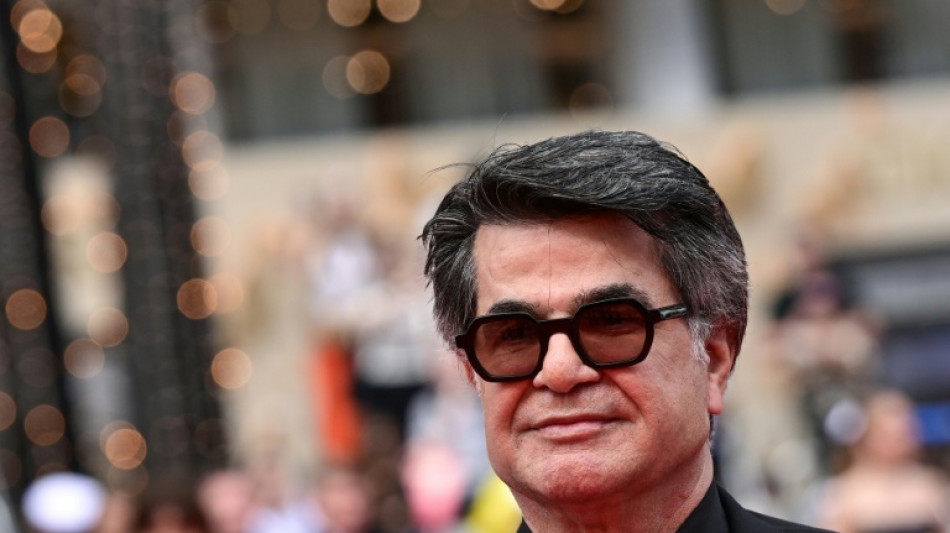
-
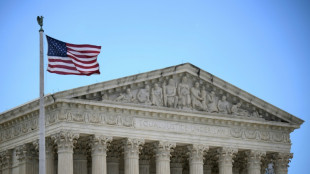 US Supreme Court appears skeptical of Trump tariff legality
US Supreme Court appears skeptical of Trump tariff legality
-
AC Milan post third straight annual profit on day of San Siro purchase
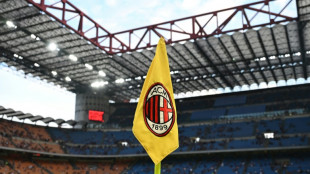
-
 Angelina Jolie visits Ukrainian frontline city, media reports say
Angelina Jolie visits Ukrainian frontline city, media reports say
-
UN says forests should form key plank of COP30

-
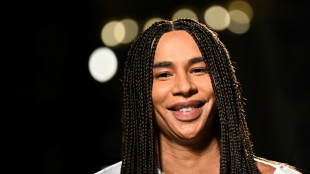 Star designer Rousteing quits fashion group Balmain
Star designer Rousteing quits fashion group Balmain
-
Mexico's Sheinbaum steps up cartel fight after murder of anti-narco mayor
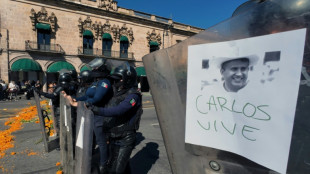
-
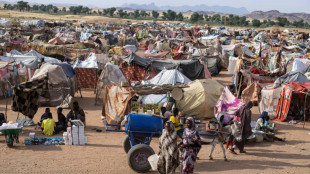 Attack on funeral in Sudan's Kordofan region kills 40: UN
Attack on funeral in Sudan's Kordofan region kills 40: UN
-
Key PSG trio set for spell on sidelines
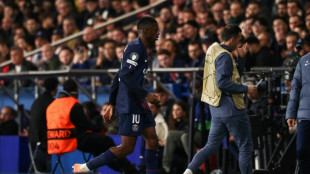
-
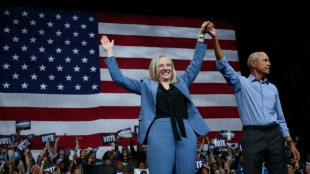 Democrats punch back in US elections - and see hope for 2026
Democrats punch back in US elections - and see hope for 2026
-
BMW reports rising profitability, shares jump

-
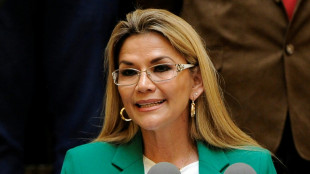 Bolivia Supreme Court orders release of jailed ex-president Jeanine Anez
Bolivia Supreme Court orders release of jailed ex-president Jeanine Anez
-
Wall Street stocks rise after positive jobs data
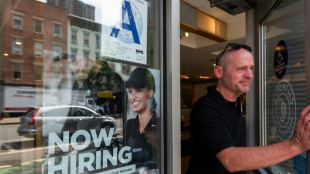
-
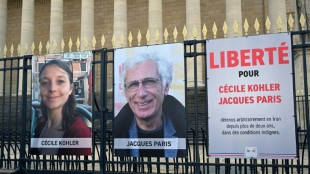 'Hostage diplomacy': longstanding Iran tactic presenting dilemma for West
'Hostage diplomacy': longstanding Iran tactic presenting dilemma for West
-
Rybakina stays perfect at WTA Finals with win over alternate Alexandrova

-
 Le Garrec welcomes Dupont help in training for Springboks showdown
Le Garrec welcomes Dupont help in training for Springboks showdown
-
Brussels wants high-speed rail linking EU capitals by 2040

-
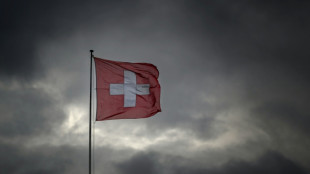 Swiss business chiefs met Trump on tariffs: Bern
Swiss business chiefs met Trump on tariffs: Bern
-
Spain's exiled king recounts history, scandals in wistful memoir
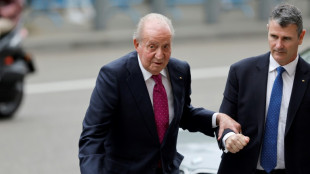
-
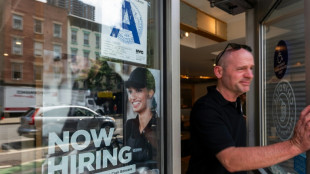 Wall Street stocks steady after positive jobs data
Wall Street stocks steady after positive jobs data
-
Trump blasts Democrats as government shutdown becomes longest ever
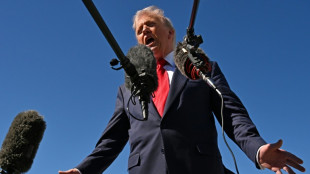
-
 Indian pilgrims find 'warm welcome' in Pakistan despite tensions
Indian pilgrims find 'warm welcome' in Pakistan despite tensions
-
Inter and AC Milan complete purchase of San Siro

-
 Swedish authorities inspect worksite conditions at steel startup Stegra
Swedish authorities inspect worksite conditions at steel startup Stegra
-
Keys withdraws from WTA Finals with illness

-
 Prince Harry says proud to be British despite new life in US
Prince Harry says proud to be British despite new life in US
-
EU strikes last-ditch deal on climate targets as COP30 looms

-
 Stocks retreat as tech bubble fears grow
Stocks retreat as tech bubble fears grow
-
Shein opens first permanent store amid heavy police presence

-
 West Indies edge New Zealand despite Santner brilliance
West Indies edge New Zealand despite Santner brilliance
-
French pair released by Iran await return home

-
 German factory orders up but outlook still muted
German factory orders up but outlook still muted
-
Death toll tops 100 as Philippines digs out after typhoon

-
 Attack on key city in Sudan's Kordofan region kills 40: UN
Attack on key city in Sudan's Kordofan region kills 40: UN
-
'No one could stop it': Sudanese describe mass rapes while fleeing El-Fasher

-
 Champagne and cheers across New York as Mamdani soars to victory
Champagne and cheers across New York as Mamdani soars to victory
-
Medieval tower collapse adds to Italy's workplace toll

-
 BMW boosts profitability despite China, tariff woes
BMW boosts profitability despite China, tariff woes
-
South Africa's Wiese wary of 'hurt' France before re-match

-
 Beyond limits: Croatian freediver's breathtaking record
Beyond limits: Croatian freediver's breathtaking record
-
Tottenham supporting Udogie after alleged gun threat in London

-
 Thunder roll Clippers to stay unbeaten as SGA keeps streak alive
Thunder roll Clippers to stay unbeaten as SGA keeps streak alive
-
In appeal, Australian mushroom murderer alleges 'miscarriage of justice'

-
 Toyota hikes profit forecasts 'despite US tariffs'
Toyota hikes profit forecasts 'despite US tariffs'
-
Ex-France lock Willemse challenges Meafou to become 'the bully'

-
 Ukrainians to honour sporting dead by building country they 'died for': minister
Ukrainians to honour sporting dead by building country they 'died for': minister
-
At least 7 dead after UPS cargo plane crashes near Louisville airport

-
 US Supreme Court hears challenge to Trump tariff powers
US Supreme Court hears challenge to Trump tariff powers
-
US government shutdown becomes longest in history

-
 India's Modi readies bellwether poll in poorest state
India's Modi readies bellwether poll in poorest state
-
Green goals versus growth needs: India's climate scorecard


Back at Cannes, Iran filmmaker Panahi defies repression
Back in Cannes for the first time in 15 years, dissident Iranian filmmaker Jafar Panahi spoke to AFP about how he feels "alive" thanks to filmmaking and the danger of continuing to work in the Islamic republic.
Imprisoned twice and until recently subjected to a travel ban, Panahi also said he was not afraid of the consequences of showing "It Was Just an Accident" in Cannes.
The answers have been translated by AFP from the original Persian and edited for clarity:
Q: Your new film "It Was Just an Accident" explores the moral dilemma faced by Iranians tempted to take revenge on their torturers. What does this say about the issues facing Iranian society?
"We chose a range of characters, from violent to non-violent, from a simple man to someone completely detached from such concerns.
"Through their actions and reactions, we reach -- or perhaps fail to reach -- a conclusion about what the right path might be.
"We let the viewer decide for themselves, asking what would they do in that situation? For me, the real question is: what would I do if this actually happened? And honestly, I don't know.
"And in the end, perhaps the film suggests that the real issue lies within a flawed structure — and that the problem lies with the government, not the people trapped inside it."
Q: In what way does your film denounce a system of government?
"It's about how we can shape the future of this country. Where is it headed? Will this cycle continue, or will we reach a place where no one dictates how we dress, what we create, or what we eat? No one has the right to control that.
"We are looking forward, thinking a few steps ahead. When will this become a reality? I don't know. But I hope it will, and I believe that it will."
Q: You were sentenced in 2010 and imprisoned twice in Iran. Are you afraid for your safety when you return home after Cannes?
"What matters most is that the film gets made... I haven't made space in my thoughts for whatever else might happen. I'm alive as long as I'm making films. If I'm not making films, then what happens to me no longer matters."
Q: How do you feel about being back at the Cannes Festival?
"The truth is I missed watching films with an audience because I couldn't put my films on in cinemas, I couldn't sit and watch them or see people's reactions. That's the biggest thing, to experience a film with an audience. When you watch a film with others, you feel alive.
"Cannes is a bigger stage and has its own qualities, but what I truly want is to sit in a cinema with ordinary people in Iran and watch this film. That's the most important thing."
Q: Do you fear being prevented from making films due to restrictions in Iran?
"They (the Iranian government) have always stopped us from making films, but we find a way. It's typical of regimes like this: they don't let artists work, they don't let anyone do what they love.
"What matters is that you find a way, just as I and other friends have done. The important thing is not to give up trying, and not to expect a regime like this to suddenly say: 'Go ahead, make your film.'
"When they gave me a 15- or 20-year work ban, I could have easily gone home and told myself: 'That's it, it's over. I can't do anything, it's not my fault,' and then let myself sink into despair.
"But I thought: 'No -- what should I do instead?' The important thing is to keep working."
R.Buehler--VB



